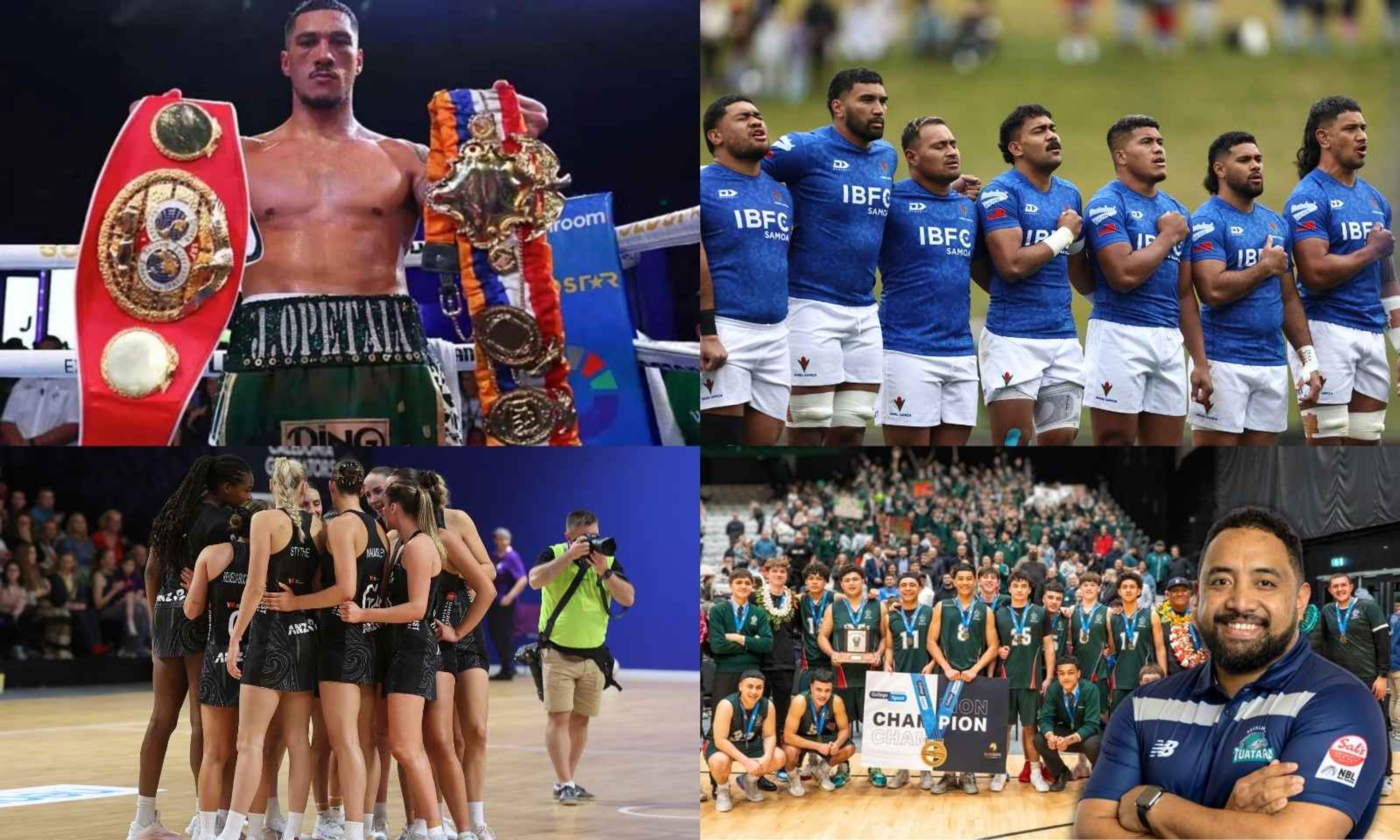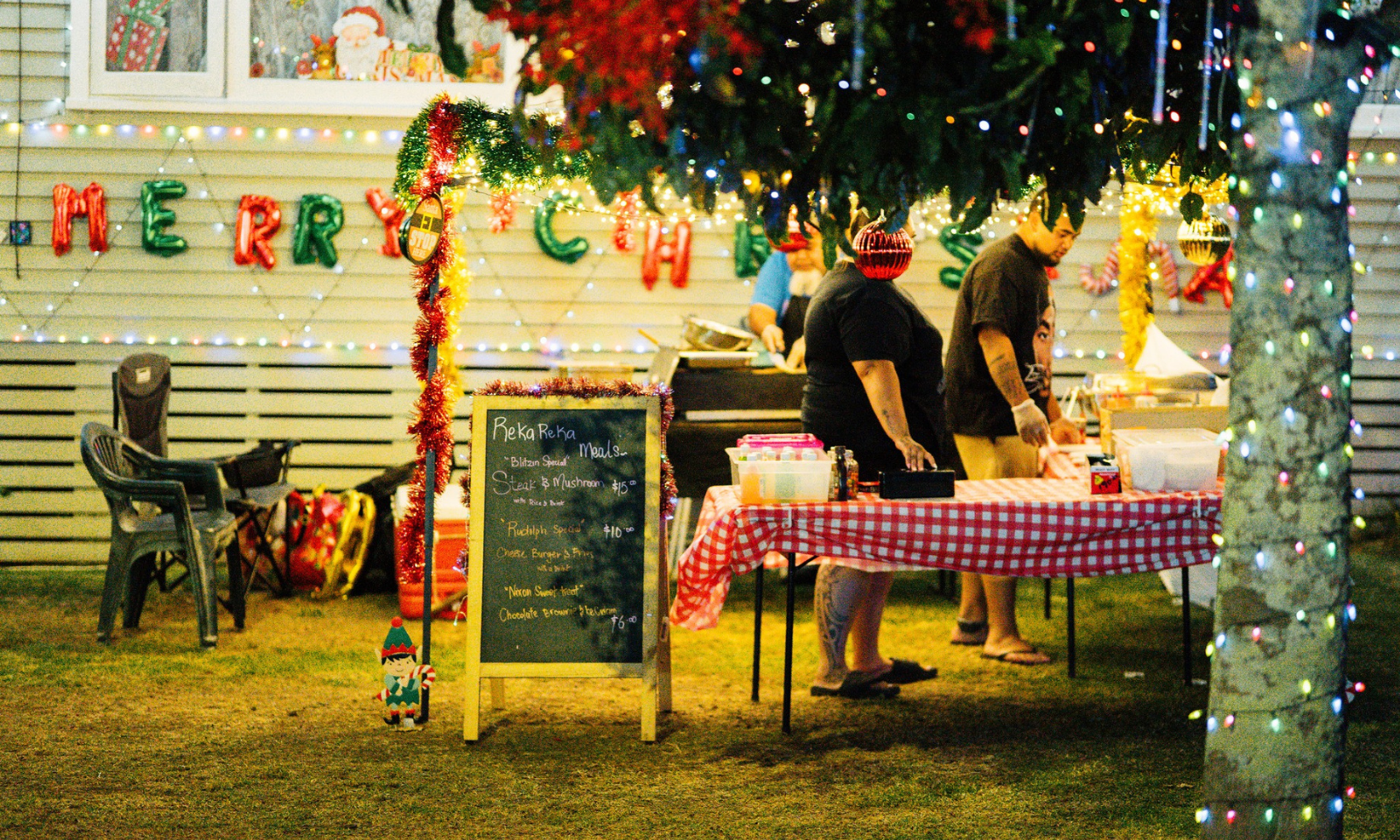

Some of the stories Aui'a Vaimaila Leatinu'u has covered this year.
Photo/PMN News
PMN's year in review: Reflecting on identity, language and how indigeneity is for everyone
PMN multimedia journalist Aui'a Vaimaila Leatinu'u reflects on the stories he's covered and the importance of indigeneity.




Pacific sports wrap: 2025’s massive highs, lows and historic firsts



Top 10 Pacific Island songs you need on your summer playlist in 2025


Pacific sports wrap: 2025’s massive highs, lows and historic firsts

This year has passed by so quickly.
Just a year ago my family and I were in Sāmoa for the Saofa'i (matai ceremony) of my older brother's matai title.
Reflecting with Levi Matautia-Morgan on 531pi's Pacific Mornings, he pointed out that my articles frequently connect to identity and language.
I wrote about if churches can save Pacific languages from dying. I spoke with community members about whether Pasifika is a unifying term or is stripping Pacific peoples of their identity.
Levi and I also spoke on a video I shot and edited during Tonga language week at Tangaroa College.
It's been a privilege to produce these pieces. I could fill out hours of conversation from what I've learned.
The most powerful lesson for me however has been the importance of indigeneity, not just for Māori or Pacific peoples but for everyone.
My first trip to Sāmoa is probably where it started, as Vailoa and Matāvai went from just names of villages my ancestors came from to places I've seen and felt.
My understanding of indigeneity is that it represents a connection to a people, who were the first to cultivate an ever-changing culture over time in a space.
I notice Pākehā in NZ, Australia and the United States often refuse to acknowledge their ancestral links within their identity, perhaps out of shame from the colonial histories of those places.
Those people will typically withdraw into the comfort of mythological identities like Kiwi, Australian or American, rather than their ancestral links to Ireland, Scotland, England and so forth.
However, you may notice for many Māori or Sāmoans, even if raised outside of Aotearoa or Sāmoa respectively, we refer to ourselves as Māori or Sāmoan before a national identity.
It's likely wired into our subconscious by our cultural upbringing to acknowledge our indigenous roots.
Yet there was a time when Pākehā somewhat understood this, as before the Kiwi identity formed in the 1970s, settlers would agree they were "sons of England" in the early 1900s.
A notion exemplified in a letter Lance Corporal George Clarke sent to his father during the Gallipoli campaign: "We were English soldiers, fighting for our English homes, and at one with all the English born."
This of course still perpetuates colonialism as not every settler migrated from England.
Today many New Zealanders' escape into the Kiwi bloke mythology, speculated to be created from settlers feeling neglected by England after World War II.
The result of this escapist attitude that empowers colonialism comes the attempt to remodify Māori indigeneity as either not true or not worth acknowledgment.
Ironically some of those who perpetuate this have Irish or Scottish heritage, two countries colonised by England.
This shows that indigeneity's most persistent enemy is colonialism which can infect anyone, regardless of skin.
Last year a proposal to build a Māori marae in Australia met great debate. Many pointed out that it ignores the history and connection to land that makes a marae a marae, while also overwriting the indigenous people of Australia’s history.
Although colonialism can infect anyone regardless of skin, the same is true for indigeneity.
The people of Wales for example are trying to revitalise their language, which was diminished by Victorian reformers who saw their culture and language as uncivilised and evil.
Former Minister for Pacific peoples Aupito William Sio once told me in an interview that connection to your language and culture is imperative for your mental health.
I've seen that connection ground people in purpose and offer an alternative to Western religion in giving them strength to persevere and pursue higher endeavors.
Speaking your ancestors' language and upholding their customs maintains your connection to them, so in that sense you are truly never alone even when you feel so.
As airy-fairy as "connecting to your roots" may be perceived, it is important. And by roots, I don't mean the shallowness of being from South Auckland. We grew up here but many of our ancestors, iwi or villages didn't but someone's did.
The Toitū Te Tiriti movement has shown Pacific peoples understand protecting indigeneity isn't just for Māori but for everyone.
So, as we celebrate the end of this year and prepare for the next with a new government that seems intent on dismissing indigeneity, I will continue to share indigenous stories.
And I hope you continue to share yours with us as we carry them through.
Check out my talanoa with Levi on Pacific Mornings via our 531 Facebook page.